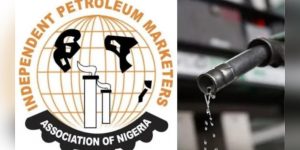
The development comes as the Independent Petroleum Marketers Association of Nigeria (IPMAN) reported that its members no longer have access to bulk petrol supplies.
The prospect of a swift end to Nigeria’s petrol shortage appears increasingly bleak, as new revelations on Sunday highlighted the Federal Government’s mounting challenges.
A staggering $6 billion debt owed to petrol suppliers, coupled with a severe liquidity crisis, has severely constrained the government’s ability to continue importing the essential product.
The development comes as the Independent Petroleum Marketers Association of Nigeria (IPMAN) reported that its members no longer have access to bulk petrol supplies.
Oil marketers have expressed their inability to import petrol, citing the soaring foreign exchange rate of $1,500 per dollar, which has driven the landing cost of the product to over N1,100 per litre.
The situation has exacerbated the fuel scarcity, leaving consumers facing higher prices at the pump.
Moreover, the Nigerian National Petroleum Company (NNPC) has also been hit hard, with its importation costs turning negative in August 2023 and ballooning to N5.41 trillion by April 2024.
The devaluation of the naira has further strained the company’s finances, raising concerns about the sustainability of petrol imports and the potential for even more severe shortages in the coming months.
Vanguard reports that the Independent Petroleum Marketers Association of Nigeria (IPMAN) raised concerns on Sunday about the exclusion of its members from the direct supply of petrol from NNPC Limited.
According to IPMAN, the lack of direct bulk supply from NNPC has forced its members to purchase petrol from private depot owners at inflated prices.
IPMAN’s Public Relations Officer, Chief Chinedu Ukadike, stated that without direct supply from NNPC, it would be difficult to resolve the fuel shortages that have persisted for over two months.
Ukadike noted that while petrol products have started arriving at ports in Warri, Port Harcourt, and Lagos, IPMAN members are still struggling to access the supply.
He said, “For several weeks, IPMAN members have not received any supplies. We’ve been purchasing from other tank farm owners and major marketers. Recently, products have begun arriving at Warri, Lagos, and Port Harcourt, but our members are still not getting allocations.
“If IPMAN members are properly allocated products, we can eliminate the profiteering and bottlenecks. Without access to our own petroleum products, we are forced to seek supplies from other tank farms.”
He assured that if these supply issues are resolved, fuel would be available at more affordable rates. He also explained that the high costs of obtaining products from private depots are due to scarcity, which drives up prices.
“When products are scarce, tank farm owners prioritize their own filling stations. As a result, we have to visit these stations, often facing a surge of trucks waiting to be discharged, and pay extra to obtain petrol,” he said.
“Even at NNPC stations, there are long lines of trucks waiting for discharge. This situation has turned independent marketers into dependent ones, as we are no longer properly included in the distribution chain.”
Ukadike highlighted that transporting a truck of petrol from coastal depots to Abuja, which used to cost around N500,000, has now escalated to about N3.5 million due to high diesel prices, truck maintenance, and poor road conditions.
Recently, oil marketers called for a reduction in the pump price of diesel to N700 per litre to improve petrol distribution across the country.
The President of the Natural Oil and Gas Suppliers Association of Nigeria (NOGASA), Mr. Benneth Korie Doi, emphasized that the high cost of diesel used by trucks is a significant barrier to efficient petrol distribution.
Doi remarked, “With Dangote’s refinery production and crude oil transactions in naira, we anticipate a reduction in AGO (Automated Gas Oil) prices. NNPC should use its stake in Dangote’s refinery to lower these costs, which will, in turn, reduce transportation expenses and market prices.”
He also stressed the importance of creating a competitive downstream sector in the petroleum industry, warning that monopolies are harmful.
“We need a competitive environment to ensure the smooth circulation of petroleum products. I commend Aliko Dangote for his significant contribution to our industry by establishing the largest refinery in Nigeria,” he said.
He added that the development promises major benefits, including increased supply, competition, and a boost to our national economy and currency.
“To ensure balanced distribution, I urge that Dangote’s refined products be made available to a wide range of stakeholders, including NNPC Trading, NNPC Retail, DAPPMAN, MOMAN, IPMAN, PETROAN, and NOGASA. Such inclusivity will ensure sustainable and widespread distribution across the country,” he said.
SaharaReporters on Sunday reported that the state-owned oil company, Nigerian National Petroleum Company (NNPC) Limited acknowledged recent reports in national newspapers regarding the company’s significant debt to petrol suppliers.
“This financial strain has placed considerable pressure on the Company and poses a threat to the sustainability of fuel supply,” a statement signed by the company’s Chief Corporate Communications Officer, Olufemi Soneye, on Sunday, said.
It said, “In line with the Petroleum Industry Act (PIA), NNPC Ltd. remains dedicated to its role as the supplier of last resort, ensuring national energy security.
“We are actively collaborating with relevant government agencies and other stakeholders to maintain a consistent supply of petroleum products nationwide.”
 DailyrecordNg …Nigeria's hottest news blog
DailyrecordNg …Nigeria's hottest news blog








